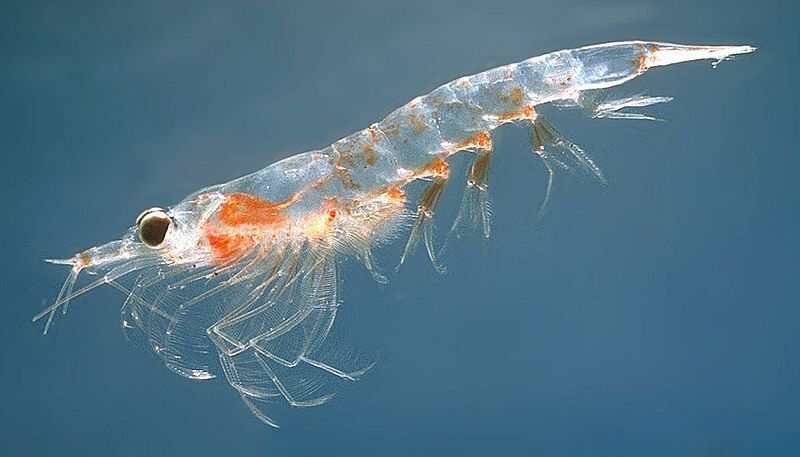Krill
In the vast expanses of the world's oceans, a diminutive yet vital organism plays a crucial role in supporting marine ecosystems – krill. These tiny, shrimp-like crustaceans, belonging to the order Euphausiacea, are instrumental in sustaining a wide array of marine life, making them an essential component of the ocean's intricate food web.
Krill exhibit a streamlined, translucent body with a segmented exoskeleton. These small crustaceans typically measure around 1 to 6 centimeters in length, with their distinctive appearance characterized by large, compound eyes and pairs of swimming legs. Despite their diminutive size, the sheer abundance of krill in certain regions of the ocean makes them a formidable force in marine ecosystems.
Krill are found in oceans across the globe, with the Southern Ocean surrounding Antarctica being home to some of the largest populations. They also inhabit other cold, nutrient-rich waters, such as those in the North Atlantic and North Pacific. Krill's distribution is closely tied to phytoplankton blooms, as these microscopic plants provide a primary food source for these crustaceans.
As primary consumers in the marine food chain, krill play a pivotal role in transferring energy from phytoplankton to larger marine organisms. They feed on phytoplankton and convert this energy into biomass, making it accessible to higher trophic levels. Krill are a critical food source for a variety of marine animals, including whales, seals, penguins, and various fish species.
Krill exhibit a unique behavior known as swarming, where they congregate in large groups, forming dense, swirling masses near the ocean's surface. This behavior not only serves as a defense mechanism against predators but also facilitates more efficient feeding on phytoplankton.
Beyond their ecological significance, krill hold commercial importance for humans. Krill oil, extracted from these tiny crustaceans, is rich in omega-3 fatty acids and has gained popularity as a dietary supplement. However, sustainable harvesting practices are crucial to avoid negatively impacting marine ecosystems that rely on krill as a primary food source.
















